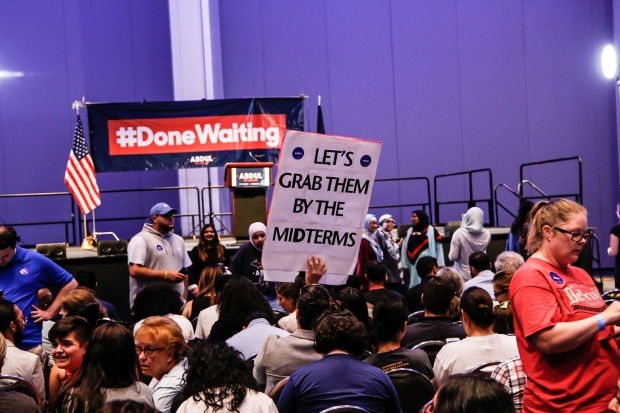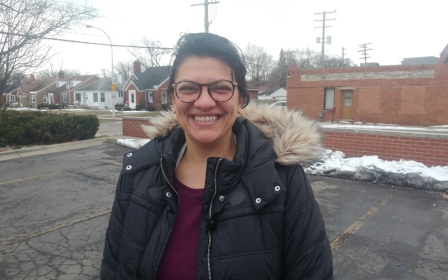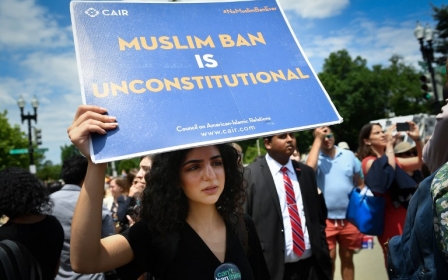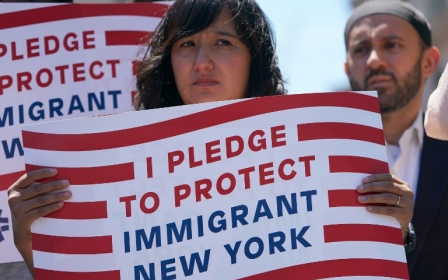'The energy is real': Muslim Americans fired up over midterm elections
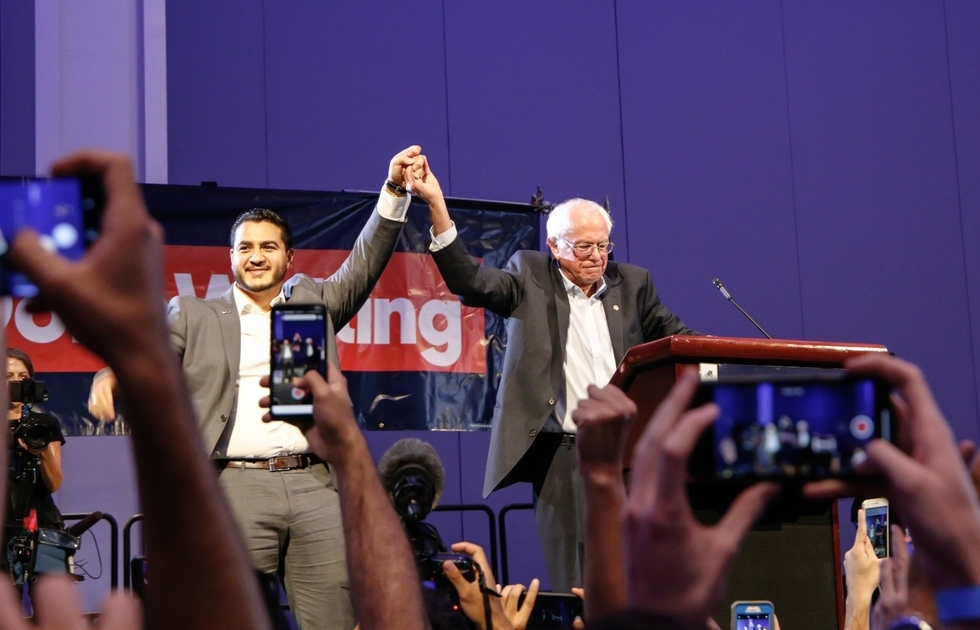
DETROIT, United States - As Bernie Sanders approached the podium in Detroit on Sunday, about 2,000 people rose to their feet with deafening welcoming cheers, as if the Democratic socialist senator's presidential campaign had not concluded two years ago.
This time, Sanders was in Michigan to help elect Abdul El-Sayed as governor of the Midwestern state.
"We need governors like Abdul El-Sayed to stand up to the greed and pathological lies of Donald Trump," Sanders, who emerged as the most popular politician in the country in 2017, told the enthused crowd in Detroit.
The 33-year-old Egyptian American doctor may become the nation's first Muslim governor.
The prominent Arab and Muslim American presence at Sunday's ethnically and ideologically diverse rally reflects increasing political energy from a community that has come into the crosshairs of the US president's anti-immigration and Islamophobic policies.
Activists say the Trump factor and Arab and Muslim candidates like El-Sayed are exciting the community to become more politically involved. They expect a higher-than-usual voter turnout at the primaries on Tuesday.
Muslims in Michigan are "hyped up" about "Berniesque" El-Sayed, and other candidates like Rashida Tlaib and Fayrouz Saad who are running for the US Congress, said Nada al-Hanooti, executive director of the Michigan chapter of Emgage, an organisation that encourages political participation from Muslims across the US.
"People are excited over these candidates… Not only do they represent them, they're qualified and they will do the work," al-Hanooti told MEE. "Our communities, Muslims and people of colour, we have been underrepresented. We have been marginalised. We really do feel that these candidates are going to change the status quo."
She added that Muslims running for office provide an opportunity for organisers like herself to engage potential voters in the political process.
"People like having candidates that look like them, that sound like them in office," al-Hanooti said.
"We are going to have a new brand of constituency, brand new voters, in this election because it's really stirring up a lot of excitement. I think our efforts are working."
Ahmad Abuznaid, director of the National Network of Arab American Communities, said he has been told by veteran activists in Michigan that the level of engagement from the local Arab and Muslim communities is unprecedented.
"The energy is real, and it's being validated by some of the folks who have been here for decades," Abuznaid told MEE. "Folks that have been dreaming and believing and hoping for a day such as this are really excited that this day has arrived."
MMCC executive director Sumaiya Ahmed Sheikh said Muslim Americans have become more interested in politics since the 2016 elections.
"The community is more engaged now than ever. I think it speaks to the rhetoric around Islamophobia, not only in Michigan but nationwide," Ahmed Sheikh told MEE.
She added that people are realising that the only way to combat bigotry is to make themselves heard.
"How do you do that in America? You get to the polls and vote for the people that you want to represent you - to speak to the values that you want out there, to protect your rights and just fix daily things," Ahmed Sheikh said.
She said Muslims are not single-issue voters who are only concerned about their civil rights; they equally care about infrastructure, education, environment and economy.
Indeed, El-Sayed, Tlaib and Saad have been running on a left-wing economic and social platform that has garnered broad support from the Democratic party's progressive base.
When Sanders was in Detroit on Sunday, he emphasised El-Sayed's plans to reform the criminal justice system, raise wages and implement a tax-funded healthcare programme that covers everyone.
El-Sayed is the former director of Detroit's health department.
"There's no better person I know to lead us to a Medicare for all healthcare programme than Dr Abdul El-Sayed," Sanders said.
The senator called the race in Michigan a litmus test for the rest of the country on the success of progressive candidates in the age of Trump.
Sanders said he was confident of El-Sayed's chances of making history, despite the young gubernatorial candidate being behind in public opinion polls.
The senator said he himself was projected to lose the state to Hillary Clinton by a wide margin in the 2016 primaries before pulling a shocking victory.
"We won that election. And, by the way, so will Abdul," Sanders said.
For many Muslim Michiganders, having candidates from their own communities is an additional motivation to vote on Tuesday.
"That alone empowers me to say: 'Hey, if they can do this, I can do this, too,'" Ahmed Sheikh said of seeing names like Abdul and Fayrouz on the ballot.
"The amount of momentum that Michigan specifically has brought in is empowering our community to the next level. You see little kids going out and canvassing. You see this shift where everyone is getting engaged and involved… Everyone wants to be a part of this movement."
Middle East Eye propose une couverture et une analyse indépendantes et incomparables du Moyen-Orient, de l’Afrique du Nord et d’autres régions du monde. Pour en savoir plus sur la reprise de ce contenu et les frais qui s’appliquent, veuillez remplir ce formulaire [en anglais]. Pour en savoir plus sur MEE, cliquez ici [en anglais].


